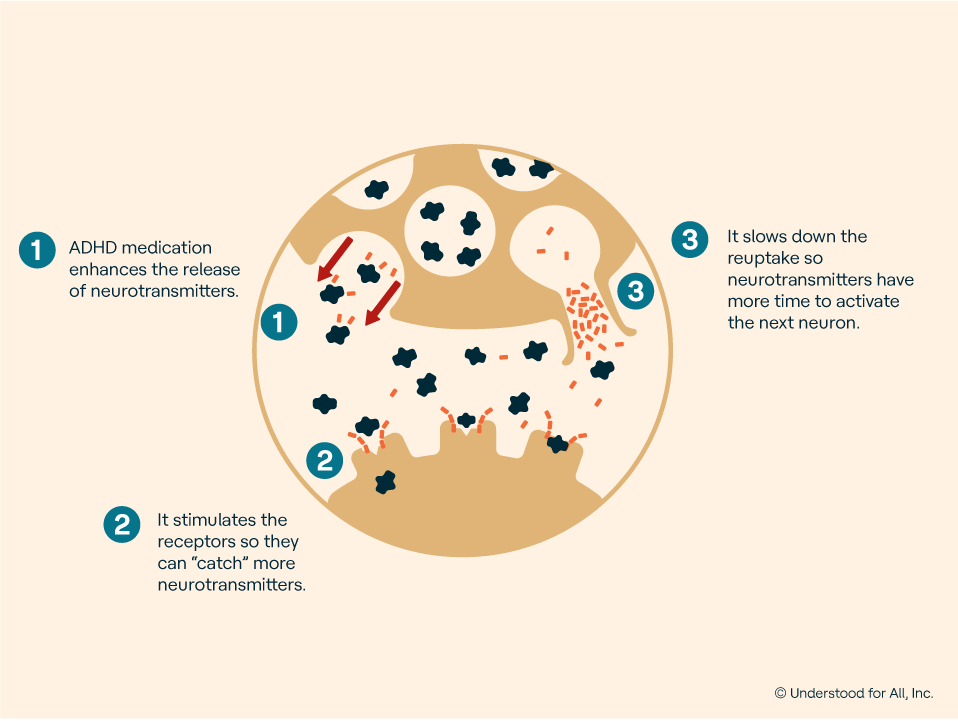Your Overview to Locating the Right ADHD Treatment for Enduring Results
Navigating the intricacies of ADHD treatment needs a nuanced understanding of both the condition and the myriad options offered for effective monitoring. It is essential to identify that what works for one individual may not necessarily produce the same outcomes for one more. Hence, a tailored method-- including expert advice, medicine, behavioral approaches, and way of life adjustments-- becomes extremely important. The journey towards recognizing the most suitable therapy plan can be laden with obstacles. What are the crucial variables that affect successful results, and exactly how can people ensure they are on the right path?
Understanding ADHD and Its Influence
:max_bytes(150000):strip_icc()/adhd-treatment-4157278_FINAL-848b0cfc4d0b42a0b66c3d2ca894e9dd.png)
In grownups, ADHD can bring about obstacles in workplace environments, affecting performance, time monitoring, and social connections. Often, undiagnosed or improperly managed ADHD can add to co-occurring psychological health and wellness issues, such as stress and anxiety and anxiety, further making complex an individual's overall health.
The societal perception of ADHD can differ, bring about stigma and misunderstanding, which might impede individuals from seeking assistance. As awareness grows, it is vital to promote an atmosphere that advertises understanding and assistance for those influenced by ADHD, emphasizing the demand for precise diagnosis and customized approaches to reduce its influence on day-to-day life.
Introduction of Treatment Alternatives
An extensive strategy to treating ADHD incorporates a variety of choices customized to the person's unique requirements. These alternatives can extensively be categorized right into behavioral interventions, psychoeducation, and way of life alterations, alongside medicinal therapies that might be discovered later.
Behavioral treatments, such as cognitive-behavioral treatment (CBT), concentrate on modifying specific actions and developing coping strategies to handle signs and symptoms properly. Psychoeducation plays a vital function in encouraging both individuals and their families by giving details about ADHD, its obstacles, and effective techniques for support.
Lifestyle alterations can dramatically affect ADHD monitoring. Regular physical activity, a balanced diet regimen, and adequate sleep add to general wellness and symptom control. Mindfulness practices and leisure strategies can additionally boost emphasis and lower impulsivity.
Support groups and family therapy can foster a sense of community and understanding, helping individuals feel less isolated in their experiences. Each treatment option should be considered in conjunction with the click this site individual's preferences and situations, guaranteeing an alternative method that advertises lasting success. Inevitably, the objective is to produce a customized treatment plan that addresses the specific challenges linked with ADHD while boosting general high quality of life.
Medicine: Advantages And Disadvantages
Drug plays an essential function in the treatment of ADHD, with countless choices offered that can substantially relieve signs and symptoms for several people. Energizers, such as methylphenidate and amphetamines, are generally prescribed and have actually revealed effectiveness in boosting focus, reducing impulsivity, and enhancing general actions. These medicines function by boosting dopamine and norepinephrine levels in the mind, which are commonly dysregulated in those with ADHD.
Nevertheless, the use of drug is not without its challenges. Some people may experience side effects, consisting of sleeping disorders, lowered have a peek at this website appetite, or increased anxiety. Discovering the right dose can be an experimental process, requiring close tracking by healthcare professionals. Additionally, not all clients reply to energizer medicines, leading some to discover non-stimulant alternatives, which may have a delayed beginning of activity or various adverse effects.
It is important for people and their family members to weigh these benefits and drawbacks meticulously. Stabilizing the benefits of signs and symptom management against prospective negative effects is critical for achieving optimal therapy end results. Cooperation with doctor can promote enlightened choices, making sure that medication is part of a comprehensive ADHD management plan.
Behavior Modification Methods

One commonly utilized technique is Cognitive Behavior modification (CBT), which aids individuals identify and change unfavorable idea patterns that add to ADHD-related challenges. Therapist for ADHD. Through CBT, clients discover to set reasonable goals, manage time successfully, and establish organizational systems
One more efficient strategy is Parent Administration Training (PMT), which informs parents on exactly how to strengthen positive behaviors and reduce adverse ones with consistent self-control and communication techniques. This method fosters a supportive home environment that encourages behavioral improvements.
Social skills training is also important, assisting individuals with ADHD navigate social communications extra efficiently. Role-playing and modeling appropriate behaviors can boost social skills and minimize stress and anxiety in social situations.
Lifestyle Changes for Better Monitoring
How can lifestyle adjustments significantly boost the monitoring of ADHD symptoms? Implementing calculated lifestyle adjustments can result in significant improvements in emphasis, organization, and emotional law for individuals with ADHD.
To start with, establishing a structured everyday routine assists in developing predictability, which can minimize sensations of overwhelm. Constant timetables for meals, research study, and rest can enhance day-to-day functioning.
Incorporating routine exercise is also vital, as workout has actually been shown to improve dopamine degrees, improving interest and inspiration (Therapist for ADHD). Intending for at least half an hour of modest exercise most days can be helpful
Nutrition plays a critical function too. A balanced diet plan abundant in omega-3 fats, entire grains, and protein can sustain cognitive feature. Restricting refined sugars and caffeine may decrease signs, as these can lead to energy accidents and irritation.
Final Thought
In final thought, discovering the right ADHD therapy requires a multifaceted approach that thinks about private demands and preferences. Cooperation with medical care experts and open communication with assistance networks are important components in browsing the complexities of ADHD monitoring, ultimately leading to enduring results and improved top quality of life.